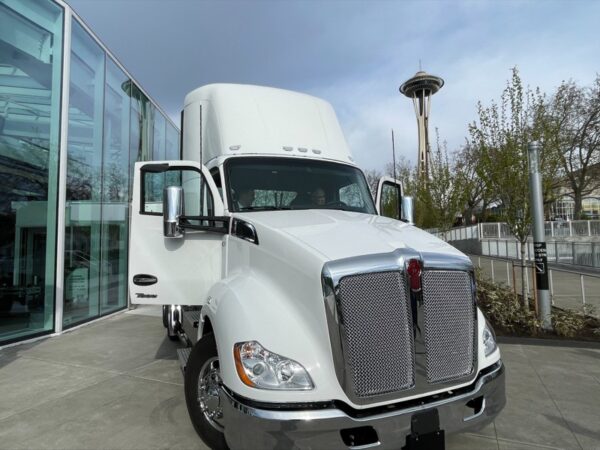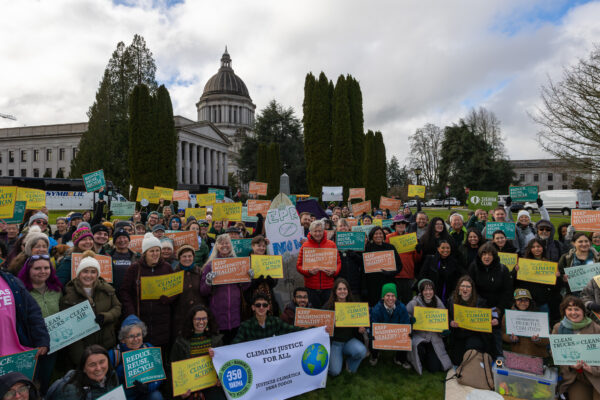It is empowering to see how many people in Washington state are taking time in this moment to stand up for racial justice. Many of you have reached out to ask how the environmental community can show up right now and what our role is in the fight against institutional racism. At WEC, we believe showing up requires accountability to ourselves and each other. And that starts with knowing the history of the environmental movement, and how it often ignored and was outright harmful to Black, Brown, and Indigenous communities.
The largest environmental organizations in the US, including WEC, have historically been, and largely continue to be, led and funded by white environmentalists. White-led organizations advocated for issues in white communities, where environmental benefits were felt by and centered on them. The environmental movement has and often continues to perpetuate ideas of white dominant culture and institutional racism, leading to a mainstream movement that has sought to preserve the natural world exclusively with white communities in mind. But that does not need to be our future. To be clear, Black, Brown, and Indigenous communities have always cared about and celebrated our environment. But these same communities also bear the largest burden of toxic pollution and environmental degradation.
Census data and science tell us that, more than income or geography, race is still the number one indicator of whether a person will live near contaminated air, water, and soil. Washington is no stranger to these disparities. People living in South Seattle’s much more racially diverse neighborhoods of South Park, Georgetown, and Beacon Hill have a life expectancy that is eight years less than their whiter and wealthier neighbors in North Seattle. That is significantly linked to these neighborhoods’ proximity to large industrial polluters and highways that contaminate the air and water [1].
In the lower Yakima Valley, farm workers and local communities have been exposed to inordinately high risks from pesticides and chemical groundwater contamination [2]. This area, home to Washington’s largest Latino population, has experienced grave health impacts from overexposure to chemicals and has even seen anomalies like “blue baby syndrome” [3] that are linked to nitrates in drinking water.
Because Black, Brown, and Indigenous communities have been excluded or marginalized from the conversation and by failing to help dismantle the racist systems around us, today’s historically and currently white-led organizations will continue upholding these systems, perpetuating environmental injustices. We can, and must, do better.
The exploitative mindset that underlies white supremacy and continues to harm Black, Brown, and Indigenous communities, is the same one driving depletion for profit, reckless drilling for fossil fuels, and irresponsible pollution of our waters. White supremacy champions dominion over nature, positions people as apart from the ecosystems we live in, divides us into groups with competing priorities, and leads to the disproportionate harm and death of Black, Brown, and Indigenous people and people of color.
As we work to address our biggest environmental crises, our solutions must confront white supremacy and institutional racism. This means the policies we advocate must:
- Work toward dismantlingstructural inequities,
- Raise and act in solidarity with partners that represent communities of color in policy and decision-making,
- And work with those communities most impacted to find solutions that provide an alternative to an economy built on extractive and unsustainable activities.
Without these principles, we cannot achieve our mission of protecting, restoring, and sustaining Washington’s environment for all. We are so proud to have you with us in this work. And we will continue to grow together to be better partners and allies in the fight for racial justice.
Over the last week our staff found these stories helpful to understand the intersections of race and the environment. We hope you’ll read these pieces with us:
- I’m a Black Climate Expert. Racism Derails our Efforts to Save the Planet. By Dr. Ayana Elizabeth Johnson in The Washington Post.
- Black Environmentalists Talk About Climate and Anti-Racism. By Somini Sengupta, featuring Sam Grant, Robert D. Bullard, and Heather McGhee, in the The New York Times.
- Why Racial Justice is Climate Justice. By Claire Elise Thompson, featuring Adrien Salazar, Kerene Tayloe, Julian Brave NoiseCat, Mariah Gladstone, and Alvaro S. Sanchez, in Grist.
- We Need You to Fight for Us to Breathe. By April Sims in The Stand.
Thank you for all you do,
Washington Environmental Council
Sources
[1] KOMO “Study: Duwamish residents have short life expectancy”
[2] Farmworker Justice “Exposed and Ignored: How pesticides are endangering our nation’s farmworkers”
[3] Yakima Herald “Crusade for clean water in the Lower Valley”



